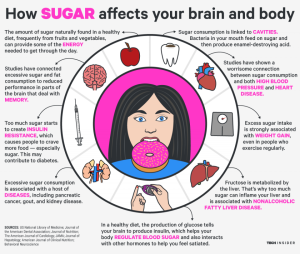
Fiber is an essential component of a healthy diet. It is a type of carbohydrate that cannot be digested by the human body. Instead, it passes through the digestive system relatively intact, providing numerous health benefits along the way. Despite its importance, many people do not consume enough fiber, which can have negative effects on their overall health. In this article, we will explore why fiber is crucial for your diet and how you can incorporate it into your daily meals.
What is Fiber?
Fiber is a type of carbohydrate found in plant-based foods such as fruits, vegetables, whole grains, legumes, nuts, and seeds. Unlike other carbohydrates, fiber cannot be broken down into sugar molecules in the body. Instead, it travels through the digestive system largely undigested, adding bulk to the stool and promoting regular bowel movements.
The Two Types of Fiber
Fiber can be classified into two categories: soluble fiber and insoluble fiber. Soluble fiber dissolves in water and forms a gel-like substance in the digestive tract. It helps to lower cholesterol levels, regulate blood sugar levels, and promote a healthy gut. Soluble fiber can be found in foods such as oats, barley, legumes, fruits (like apples and oranges), and vegetables (like carrots and broccoli).
On the other hand, insoluble fiber does not dissolve in water and adds bulk to the stool, helping prevent constipation and promoting regular bowel movements. Insoluble fiber is commonly found in whole grains, nuts, seeds, and the skin of fruits and vegetables.
The Health Benefits of Fiber
Now that we understand the different types of fiber, let’s delve into the numerous health benefits it can provide:
1. Promotes Digestive Health
Fiber plays a crucial role in maintaining a healthy digestive system. It adds bulk to the stool, preventing constipation and promoting regular bowel movements. Additionally, fiber promotes the growth of good bacteria in the gut, which is essential for overall digestive health.
2. Controls Blood Sugar Levels
Fiber helps regulate blood sugar levels by slowing down the absorption of sugar into the bloodstream. This is particularly beneficial for individuals with diabetes or those at risk of developing the disease.
3. Reduces Cholesterol Levels
Consuming soluble fiber can help lower cholesterol levels by binding to cholesterol in the digestive system and preventing its absorption into the bloodstream. By reducing cholesterol levels, fiber plays a vital role in maintaining heart health.
4. Aids in Weight Management
Foods high in fiber are typically low in calorie density, meaning they provide fewer calories per gram. By incorporating fiber-rich foods into your diet, you can feel fuller for longer, reducing the likelihood of overeating and aiding in weight management.
Incorporating Fiber into Your Diet
Increasing your fiber intake is easier than you might think. Here are some practical tips to help you incorporate fiber-rich foods into your diet:
1. Choose Whole Grains
Replace refined grains, such as white bread and white rice, with whole grains like brown rice, quinoa, and whole wheat bread. Whole grains retain their bran and germ, making them higher in fiber and nutrients.
2. Eat More Fruits and Vegetables
Incorporate a variety of fruits and vegetables into your diet, as they are excellent sources of fiber. Aim for at least five servings of fruits and vegetables daily. Don’t forget to eat the skin, as it is often where most of the fiber is found.
3. Snack on Nuts and Seeds
Nuts, such as almonds and walnuts, and seeds, like chia and flaxseeds, are not only packed with healthy fats but are also great sources of fiber. Incorporate them into your diet as snacks or sprinkle them over salads, oatmeal, or yogurt.
4. Add Legumes to Your Meals
Legumes, such as lentils, chickpeas, and black beans, are rich in both protein and fiber. They can be easily added to soups, stews, salads, or used as a meat substitute in various dishes.
Conclusion
Fiber is an essential component of a healthy diet and offers numerous benefits for your overall well-being. It is vital for maintaining good digestive health, controlling blood sugar levels, reducing cholesterol levels, and aiding in weight management. By incorporating fiber-rich foods into your diet, such as whole grains, fruits, vegetables, nuts, seeds, and legumes, you can significantly improve your overall health. So, make sure you prioritize fiber in your diet for a healthier and happier life!

